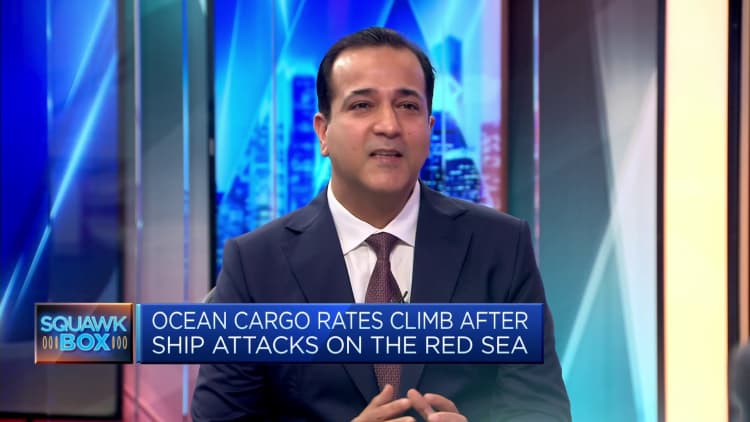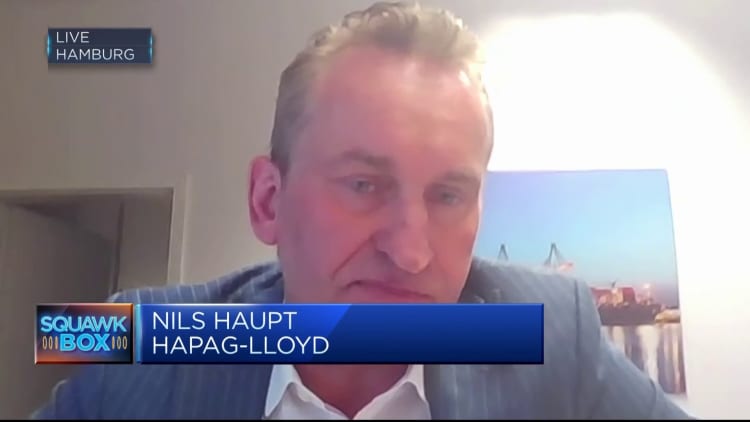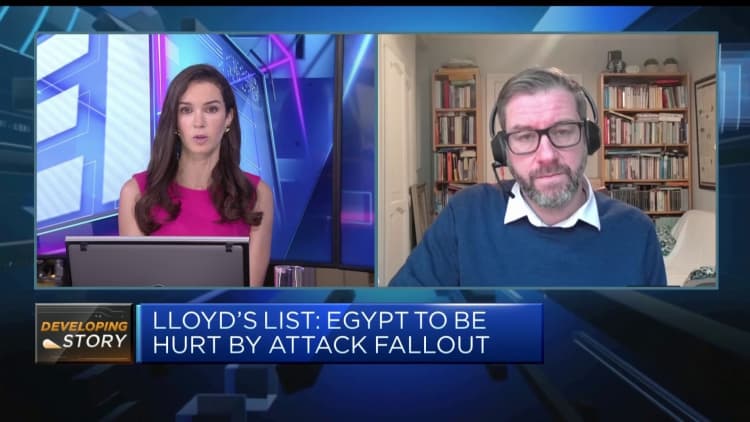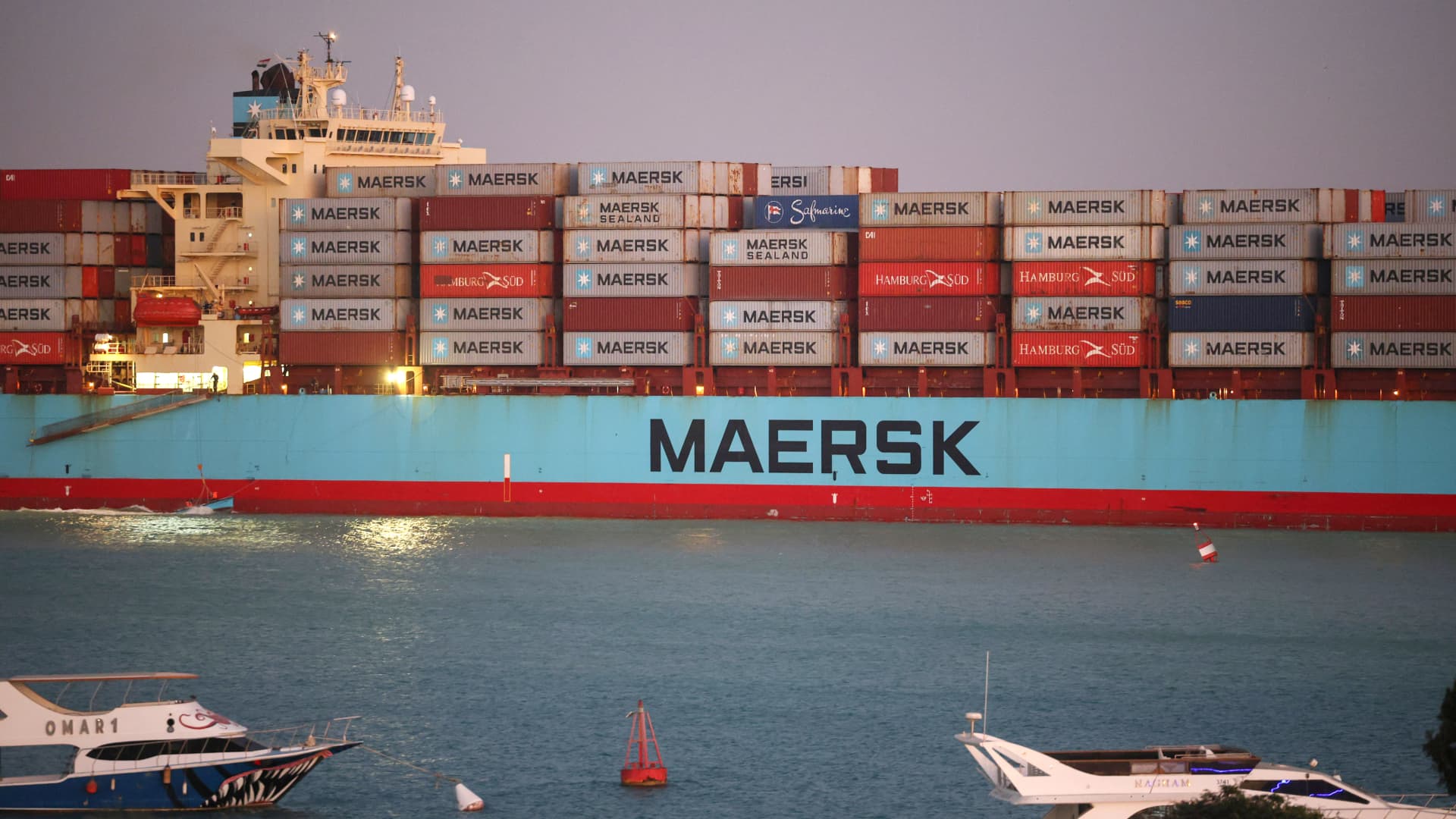The Maersk Sentosa container ship sails southbound to exit the Suez Canal in Suez, Egypt, on Thursday, Dec. 21, 2023.
Stringer | Bloomberg | Getty Images
Danish shipping giant Maersk said Friday it would extend its diversion of vessels from the Red Sea for the “foreseeable future” due to safety concerns amid a spate of attacks by Houthi militants.
“The situation is constantly evolving and remains highly volatile, and all available intelligence at hand confirms that the security risk continues to be at a significantly elevated level,” Maersk said in a statement.
It added that it hoped to now bring customers “more consistency and predictability,” despite delays to deliveries.
The diversion means avoiding the quickest path between Europe and Asia through Egypt’s Suez Canal, and taking the longer Cape of Good Hope route around southern Africa.

Several European firms, including Sweden’s Ikea, British retailer Next and appliance firm Electrolux, have warned of delays on some products due to supply chain disruption.
Maersk had resumed travel through the Red Sea and Gulf of Aden after a December pause, but halted it again on Tuesday after one of its vessels was attacked.
Uncertainty for firms has not eased despite a U.S.-led multinational military operation in the region, which aims to provide a “persistent defensive presence in the Red Sea” and has fired on Houthi boats.
The Houthis are a Yemen-based group backed by Iran. Its leadership has said it is targeting Israel-bound vessels in support of the Palestinian people amid the war in Gaza, but ships bound for multiple destinations have been attacked.
Traveling around Africa can add between two and four weeks to a ship’s transit time between Asia and Europe depending on the speed traveled, Maersk CEO Vincent Clerc told CNBC in a December interview.
Nearly 15% of global seaborne trade transits the Red Sea, according to the U.S. Analysts broadly do not see the current disruption as causing as much upheaval to supply chains as was seen during the coronavirus pandemic due to a sharp increase in supply capacity since 2021.
Maersk’s Europe-listed shares were choppy after the announcement. It has been one of the top European performers of the new year, gaining more than 16% this week.
Investors see the company — along with its peers — benefiting from reduced capacity in the market, which has already driven ocean freight rates higher.

German shipping firm Hapag-Lloyd has also said it will continue to divert vessels away from the Red Sea amid Houthi attacks.
“What we can say for the moment [is] we don’t see the passage through the Red Sea and the Suez Canal as safe,” Nils Haupt, head of corporate communications at Hapag-Lloyd, told CNBC’s “Squawk Box Europe” on Friday.
“We had an attack in December, you can’t imagine how hard that was, not only for us as a company but especially for our crew. There were several attacks in the last days and as long as the passage through the Red Sea and Suez Canal is not safe, we won’t pass,” he added.


